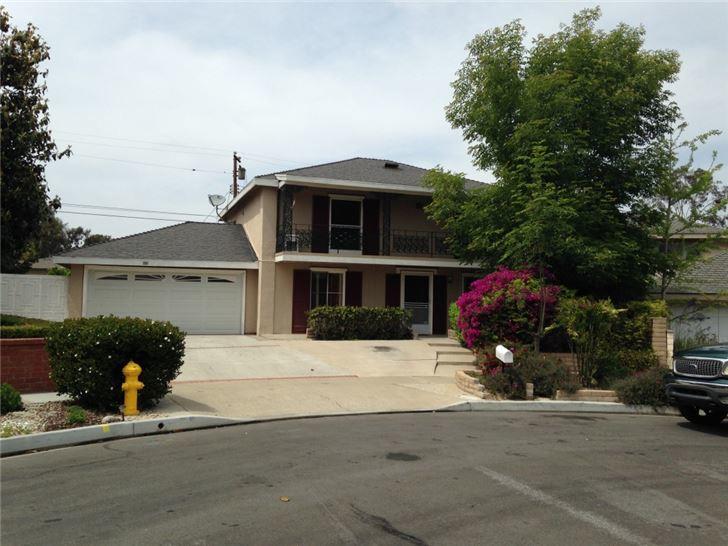Sober Living Homes in Orange County
 Sober living is an incredibly valuable tool for recovery, as it allows recent inpatient clients (and some intensive outpatient clients) to live in a drug- and alcohol-free home with other individuals who are focused on recovery. Sober living is especially helpful for those transitioning out of rehab centers who would prefer to start out in a safe, temptation-free environment.
Sober living is an incredibly valuable tool for recovery, as it allows recent inpatient clients (and some intensive outpatient clients) to live in a drug- and alcohol-free home with other individuals who are focused on recovery. Sober living is especially helpful for those transitioning out of rehab centers who would prefer to start out in a safe, temptation-free environment.
For most clients, sober living at Yellowstone becomes an option after the initial residential treatment portion of the program is successfully completed. Within the structure of sober living, each client is equipped to effectively integrate their sober foundation with real-life fundamentals. Each house is managed by a full-time house manager, and the purpose of each house is to offer clients the practical support of living sober on their own.
The life of recovery is one that is built over time, and we believe in a commitment to daily, healthy habits that are established with repetition and discipline. Within the family environment, clients find that returning to work, school, and daily life is more easily accomplished in the presence of like-minded people.
What Are Sober Living Homes?
A sober living home is a specialized residence designed to provide a safe, substance-free environment for those recovering from drug or alcohol addiction. Residents cook, clean, manage finances, and take care of other everyday responsibilities independently, just as they would in any other home. Residents live, eat, socialize, and attend 12-step meetings together as roommates, supporting one another through the challenges of maintaining their newfound sobriety.
At Yellowstone, we recognize that not all clients will be ready to return to “normal life” right away. We also recognize that the journey of recovery for each client has its own unique pace. Once a client is accepted to a sober living house, he or she is welcome to stay for as long as needed, even if it takes years.
Rules and Expectations for Those in Sober Living
 Sober living at our southern California facility has a reasonable curfew, 12-step support, and an accountability system. We believe in the value of action in recovery, and each house has simple chores, rules, and responsibilities meant to foster personal growth. We help clients find gainful employment by providing proper resources and tools, but individuals are still expected to be mostly self-sufficient at this stage. We offer our outpatient treatment program as a form of continuing education and structure to aid in the client’s sobriety.
Sober living at our southern California facility has a reasonable curfew, 12-step support, and an accountability system. We believe in the value of action in recovery, and each house has simple chores, rules, and responsibilities meant to foster personal growth. We help clients find gainful employment by providing proper resources and tools, but individuals are still expected to be mostly self-sufficient at this stage. We offer our outpatient treatment program as a form of continuing education and structure to aid in the client’s sobriety.
Service commitments are instrumental in maintaining a life of sobriety, and Yellowstone requires each individual to be actively participating in their recovery through sponsorship, volunteering, and step work. Sober living is a terrific way for newly sober individuals to be monitored as they leave drug rehab and learn to take care of themselves.
Long-term sobriety is often easier to maintain when utilizing sober living as a means for aftercare and support. We advise that clients stay in the sober living environment as long as possible, take the time to cultivate friendships in the recovery community, and slowly add elements of day-to-day life back into their routine. There is no maximum length of stay in sober living and, often, individuals will stay longer because of the convenient house support.
Tips for a Positive, Successful Sober Living Experience
Sober living strikes a balance between living on-site at a rehab facility and living completely independent of treatment facilities. Although you’ll be in a substance-free environment with access to recovery resources, you’ll also need to watch your own behaviors while you’re there. The following strategies can help you succeed.
Build a Support Network
As social creatures, humans tend to have greater success during trials when they have a strong network of peers, friends, and family providing constant love and support. Family members, sober living roommates, friends, and coworkers are often good sources of support.
Avoid Known Triggers as Much as Possible
Whenever you can, try to avoid people, places, things, and activities that might trigger memories of trauma and/or past substance abuse. For obvious reasons, bars and nightclubs where you would have access to drugs and alcohol would not be good places to hang out. Women who have been victims of sexual assault or abuse may want to opt for a women’s sober living house.
Explore New Hobbies and Keep Yourself Busy
Keeping yourself busy is a great way to avoid the temptation that can arise from boredom. Finding a new hobby that really interests you can also serve as a healthy outlet to help you relax and build new skills.
Continue Building on Your Success
It’s important to continue focusing on your recovery and building upon what you started in inpatient treatment. Continue actively participating in a 12-step program, practicing the cognitive behavioral techniques you’ve learned, and working to stay clean and sober. Don’t let yourself fall back into old habits.
Is Sober Living a Good Fit for You?
 If you need transitional living space after an inpatient rehab program, you may be struggling to decide between living with loved ones or applying for a place in a sober living facility. To determine whether sober living is a good fit for you, consider the following questions:
If you need transitional living space after an inpatient rehab program, you may be struggling to decide between living with loved ones or applying for a place in a sober living facility. To determine whether sober living is a good fit for you, consider the following questions:
- Can you find (or do you already have) a place that is affordable? Will you be safe from contact with triggering people/things from your past?
- Are your relationships with family and friends healthy? Would living with them present any additional stress?
- How severe is your risk of relapse? Would you feel safer and more confident in a substance-free environment with others in recovery?
The answers to these questions can give you an idea of whether you would be most successful in sober living or can handle living elsewhere without risking an early relapse.
At Yellowstone Recovery in Orange County, CA, we know that your mindset toward sobriety can be influenced by the people and environments around you. For that reason, we offer our outpatient clients and program graduates the opportunity to participate in one of our safe, recovery-focused sober living programs. To learn more about sober living at Yellowstone or inquire about your eligibility, call us today at (888) 418-4188.
BACK
Request More Information
Start your recovery today.
- Treatment Options
- Program Curriculum
- Program Services
Why Choose Yellowstone?
Low Cost Pricing
Financing Available
PPO Insurance Accepted
Provide Complete
Continuum of Care








